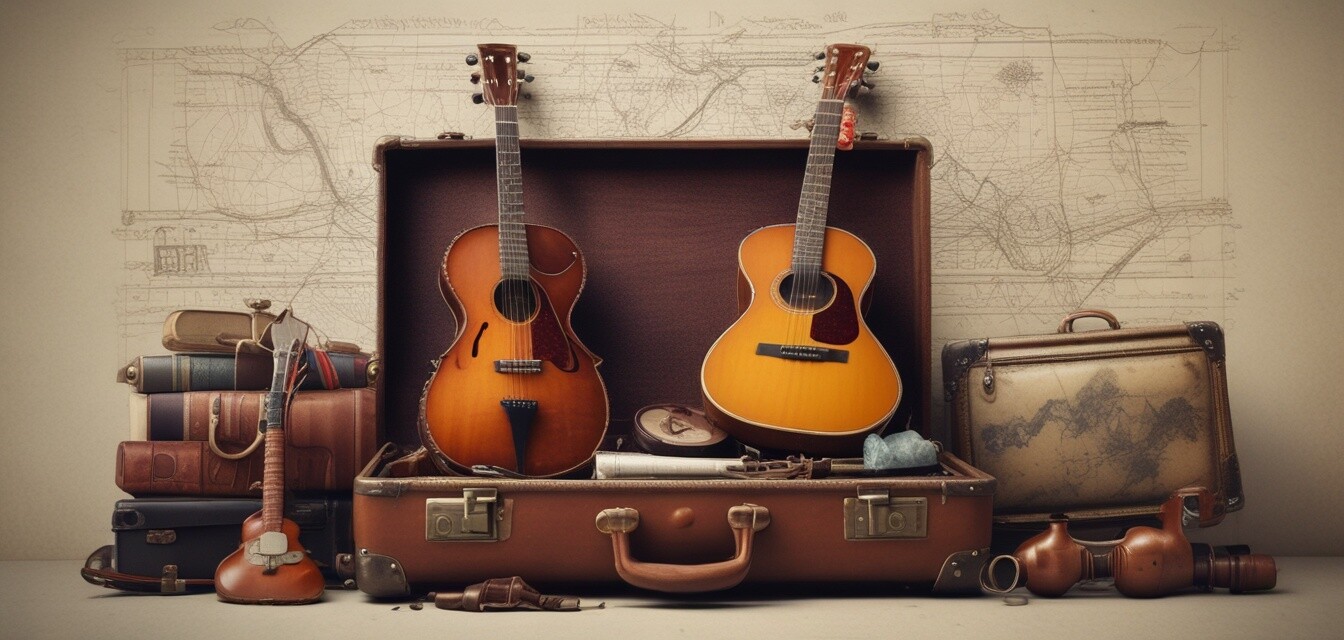
Tips for Traveling with Musical Instruments
- Understand airline policies regarding musical instruments.
- Choose the right luggage to protect your instrument.
- Consider using padded cases and additional packing materials.
- Arrive early for check-in and security checks.
- Your instrument may require special handling; inform staff at check-in.
Traveling with musical instruments can be a daunting task, but with the right planning and precautions, you can ensure your beloved instruments arrive safely at your destination. Whether you're heading to a gig, a recording session, or simply taking your instrument on vacation, these tips will help you navigate the challenges of air travel with your musical gear.
Know Your Airline's Policies
Each airline has different rules regarding the transport of musical instruments. It’s essential to check these policies well in advance of your trip. Some airlines allow small instruments in the cabin, while others might require them to be checked in.
| Airline | Cabin Policy | Checked Policy |
|---|---|---|
| Airline A | Up to 40 inches | Allowed with fee |
| Airline B | Musical instruments not allowed in cabin | Must be checked |
| Airline C | Up to 60 inches as carry-on | Allowed without fee |
Choosing the Right Luggage
Selecting the correct luggage for your musical instrument is crucial. Here are a few options that work well:
- Hard-shell cases: Provide the best protection against impacts.
- Soft cases: Lightweight and easier to carry, but may provide less protection.
- Custom-fit cases: Designed specifically for your instrument, ensuring a snug fit.
Packing Tips for Instruments
Here are some packing tips to ensure your instruments remain safe during travel:
- Use extra padding, such as bubble wrap or foam, to secure the instrument within its case.
- Remove loose parts and accessories that could get detached during transport.
- Label your instrument case with your name, contact information, and destination address.
Arriving at the Airport
Here’s how to make the airport experience smoother:
- Arrive early to allow time for check-in and security.
- Communicate with gate agents and let them know you are traveling with a musical instrument.
- Be prepared to demonstrate that your instrument is fragile if needed.
Pros
- Protecting your instrument can enhance its longevity.
- Properly packed instruments can withstand travel-related stress.
- You’re less likely to incur damage fees with well-packed items.
Cons
- Additional luggage can incur extra fees.
- Some instruments may still face restrictions regardless of packing.
- Carrying multiple instruments may weigh you down.
Safety Tips While Traveling
Lastly, keep these safety tips in mind:
- Always carry your instrument as a carry-on if possible.
- Use backpacks for smaller instruments, so your hands remain free.
- Be mindful of your surroundings and keep an eye on your gear.
Consider Insurance
Investing in instrument insurance can provide peace of mind while traveling. If anything were to happen, you'll be covered.
For More Travel Tips
For additional tips on organizing your travel plans, check our other articles on Travel Tips or read about how to choose the right carry-on luggage for your needs. Ensuring your travel gear is fit for purpose is essential.
Beginner’s Section: Packing Essentials for Musicians
If you're new to traveling with instruments, here are some essentials you should consider packing:
- Cleaning cloths for instruments
- Spare strings and repair kits
- Sheet music and reading glasses if needed
- Plug adapters and cables
- A comfortable strap for easy mobility